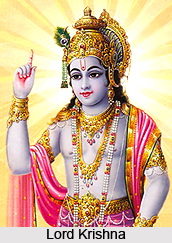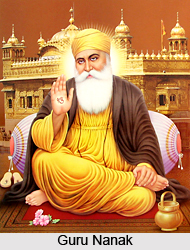 Religious condition under the rulers of the Delhi Sultanate went through a significant change. During the initial years of their rule, all ancient religious sects in India like the Vedic religion, Hinduism, Buddhism, Jainism, Vaishnavism, Shaivism etc. existed in different forms. But with time many religion declined or were concentrated only in some parts of India. Among the Muslims, the Sunnis and the Shiahs constituted the majority. The novelties of this period were the growing popularity of Sufism among the Muslims and Bhakti movement among the Hindus.
Religious condition under the rulers of the Delhi Sultanate went through a significant change. During the initial years of their rule, all ancient religious sects in India like the Vedic religion, Hinduism, Buddhism, Jainism, Vaishnavism, Shaivism etc. existed in different forms. But with time many religion declined or were concentrated only in some parts of India. Among the Muslims, the Sunnis and the Shiahs constituted the majority. The novelties of this period were the growing popularity of Sufism among the Muslims and Bhakti movement among the Hindus.
Sufism is an old religious sect and it had penetrated into India prior to the advent of the Delhi Sultanate. Once the Muslims firmly established themselves in India, Sufism gained prominence. A large number of Sufi saints came into India and settled themselves in different parts of the country. Sufism was influenced by the religious views prevalent among the Indians. Love towards god, non violence, practice of self discipline etc. was common values among the Hindus, Buddhist and Jains in India. The philosophy of Sufism believes in one god and regards every individual and everything else as part of him. The Sufis were devout Muslims who moved within the Shariat and believed it as the true way to attain salvation.
 The Sufi saints led a simple or rather ascetic life and believed in the renunciation of all worldly possessions and pleasures. They did not believe in image worship of any form. They regarded God as kind and benevolent and therefore they did not fear him but loved him. They regarded Desire as the primary enemy of human and therefore emphasised on giving it up. Music inspired them to remember God and therefore they engaged themselves in music and dance with ecstasy while remembering god. The Sufis believed in Guru (Master) whom they called Pir and thought that no one can approach near God without the assistance of a Guru. The Sufis were divided into different sects, most important of them being the Suravardi sect and the Chisti sect. The influence of Suravardi sect remained limited only to Sindh, Punjab and Multan but the Chisti sect became well accepted all over India including Punjab, Rajasthan, Madhya Pradesh, Bihar, Bengal, Orissa and south India. Many Sufi saints became quite popular during the period of the Delhi Sultanate. The most important of them were Shaikh Muin-ud-din Chisti, Baba Farid-ud-din, Nasir- ud- din Mahmud, Nizam- ud- din Auliya, Khwaja Shaikh Taki- ud- din and Malik Muhammad Jaysi.
The Sufi saints led a simple or rather ascetic life and believed in the renunciation of all worldly possessions and pleasures. They did not believe in image worship of any form. They regarded God as kind and benevolent and therefore they did not fear him but loved him. They regarded Desire as the primary enemy of human and therefore emphasised on giving it up. Music inspired them to remember God and therefore they engaged themselves in music and dance with ecstasy while remembering god. The Sufis believed in Guru (Master) whom they called Pir and thought that no one can approach near God without the assistance of a Guru. The Sufis were divided into different sects, most important of them being the Suravardi sect and the Chisti sect. The influence of Suravardi sect remained limited only to Sindh, Punjab and Multan but the Chisti sect became well accepted all over India including Punjab, Rajasthan, Madhya Pradesh, Bihar, Bengal, Orissa and south India. Many Sufi saints became quite popular during the period of the Delhi Sultanate. The most important of them were Shaikh Muin-ud-din Chisti, Baba Farid-ud-din, Nasir- ud- din Mahmud, Nizam- ud- din Auliya, Khwaja Shaikh Taki- ud- din and Malik Muhammad Jaysi.
The Bhakti movement in Hinduism was a remarkable feature during the period f Delhi Sultanate. Hindu saints emphasised on Bhakti as a means to attain salvation and that resulted in the Bhakti movement. Hinduism had to face the challenge of Islam in the medieval period which gave birth to the Bhakti movement. The saints of the Bhakti movement believed in god who could be called by different names such as Lord Rama, Lord Krishna, Lord Shiva or Allah. They were against the caste system or image worship and laid stress on Bhakti as the only means to attain salvation. The Bhakti saints believed that a devotee needed a Guru who could help and guide him to attain salvation, though that could be achieved only by the grace of God while the grace of god itself could be achieved only by one`s own effort.
The saints propagated these ideas among the people by means of their teachings in simple languages, poems and prayers. But the most effective way of preaching their thoughts was their personal dedicated lives to God. The saints preached their ideas not in Sanskrit but in other Indian regional languages of the people. The pioneers of the Bhakti movements were Ramanuja, Nimbakara and Madhavacharya. Bhakti movement rose to popularity through Ramananda who flourished in the fourteenth century. Other Bhakti saints like Kabir, Guru Nanak and Chaitanya contributed a lot in the expansion and popularity of Bhakti movement.



















